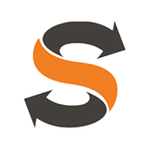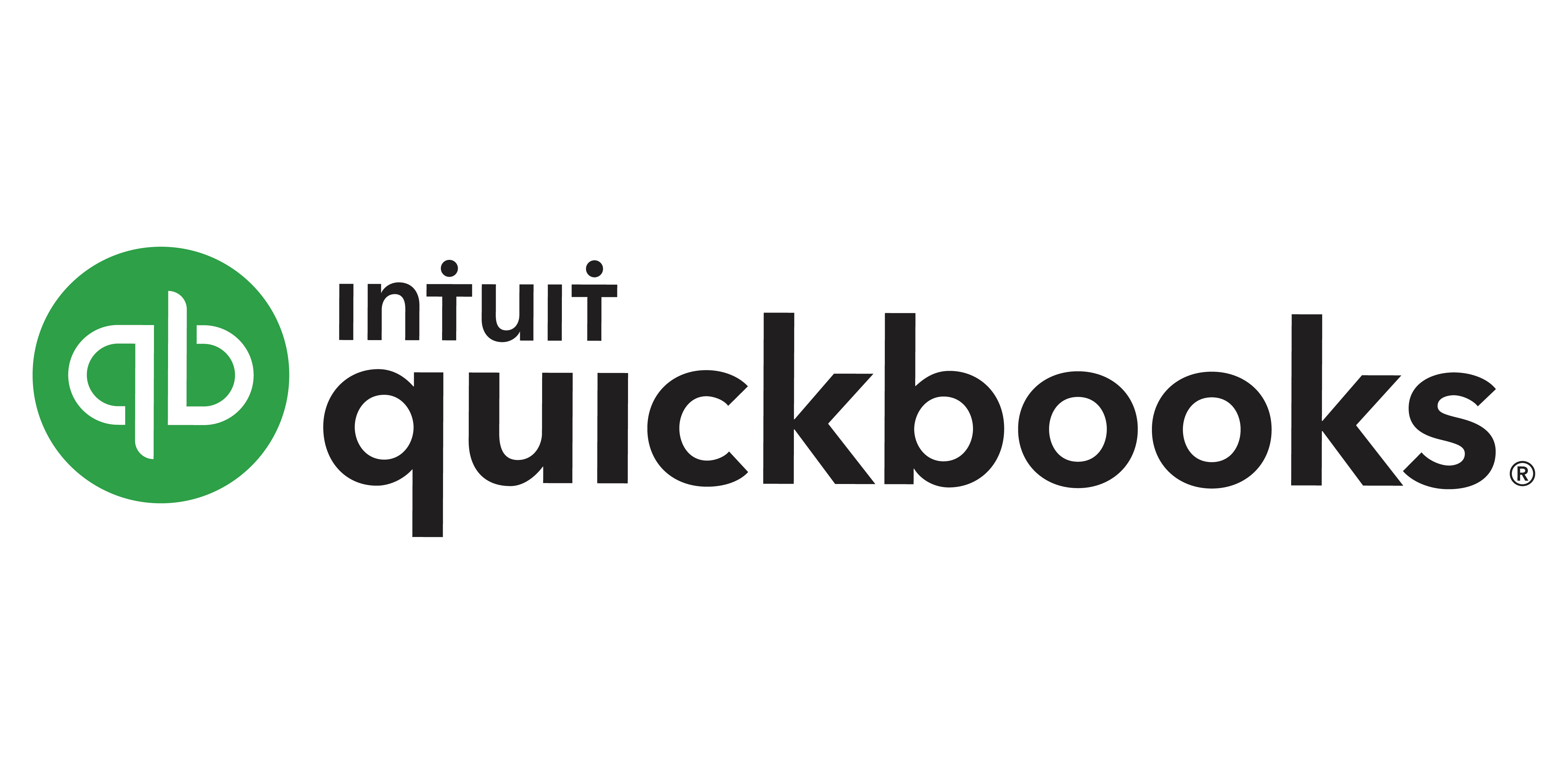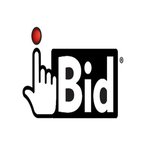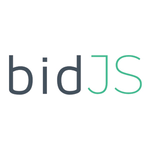Yes, most auction software is designed to be available from numerous devices and platforms, providing ease and flexibility to both auction organizers and participants. This implies that the software works on desktops, laptops, tablets, and smartphones and is compatible with a variety of operating systems, including Windows, Mac, iOS, and Android. This ensures a smooth and efficient auction experience for everyone concerned.
List of 20 Best Auction Software
Swappy Live is a software that integrates advanced technology to enhance user experiences and revolutionize traditional processes. With a dynamic approach, Swappy Live streamlines workflows, increases productivity, and sets a new standard for excelle...Read More Swappy Live
Wavebid is a auction management solution designed to make every step of the process simple and stress-free. Our platform boasts convenient features for generating appraisal reports, inventories, and workfiles with ease. Say farewell to time-consuming...Read More Wavebid
Auction-Tracker is a solution for seamlessly managing your live and silent auctions. With our easy-to-use software, you can effortlessly handle donor engagement and handle transactions with efficiency. Experience the benefits of features like outbid...Read More Auction-Tracker
Auctria is a fundraising platform designed to enhance your auction and event planning experience. With features like donation management and mobile bidding, Auctria simplifies your tasks and helps you achieve a successful fundraiser. Its intuitive in...Read More Auctria
aiShip Shipping Calculator - the perfect solution for efficient shipping and cost reduction. Instantly compare rates from top courier services and gain full control over your logistics. Let aiShip simplify your shipping process and optimize your savi...Read More aiShip Shipping Calculator
GalaBid is a fundraising solution for effortless silent auctions and raffles. Our versatile platform is designed to enhance donor engagement through convenient mobile bidding, real-time updates, and seamless payment processing, resulting in a more in...Read More GalaBid
Auction-Experts is the affordable and comprehensive auction management software that utilizes cutting-edge AI technology for efficient auction analysis. Our user-friendly platform enables businesses to effortlessly organize both offline and online au...Read More Auction-Experts
AuctionAnything solution for streamlining your auction management process. Our web-based software offers customizable buy and sell tools that can be tailored to meet your specific business needs. Say goodbye to complex procedures and hello to efficie...Read More AuctionAnything
Auction Flex is a auction software for a smoother bidding and cataloging process. With a user-friendly mobile app compatible with all devices, you can access your auctions on-the-go. No more manual mailing listings, Auction Flex simplifies the proces...Read More Auction Flex
SimpleAuction solution for streamlining your auction processes. This comprehensive software is designed to enhance and simplify your inventory management, helping you maximize profits and alleviate stress. With its versatile features and user-friendl...Read More SimpleAuction
ILance is a top-notch web-based auction management software ideal for e-commerce businesses. With its dynamic live auction capability, ILance provides a hassle-free platform for bidding and selling in online auctions. Our all-in-one solution simplifi...Read More ILance
QuickBooks Online, the premier accounting software for entrepreneurs and business owners. Streamline your financial management with its intuitive interface, top-notch security measures, and cutting-edge features such as Online bank connectivity and W...Read More QuickBooks Online
ClickBid, the premier charity auction platform designed specifically for nonprofits. Transform your event planning and enhance your fundraising success with our intuitive and reliable technology. Join the countless organizations that have already exp...Read More ClickBid
iBid - the premier mobile bidding solution designed to streamline charity auctions. Experience a seamless event with iBids intuitive interface, instant updates, electronic receipts and protected donor data. Bid farewell to event planning headaches an...Read More iBid
Adam Auction is a SaaS platform for all businesses. Powered by innovative AI technology, it provides both traditional and reverse auction options to streamline processes and cut down on time, labor, and financial costs. Its sleek and user-friendly in...Read More Adam Auction
BidJs is a live auction software, featuring innovative HTML5 bidding technology. Easily bid in any language with its advanced translation capabilities. Keep track of your bids in real-time with the convenient bidding tracking feature, keeping you upd...Read More BidJs
AuctionWorx Enterprise is a all-in-one solution for businesses looking to host online auctions. Easily create and manage multiple auctions, customize your branding, and say goodbye to commission fees. With its modern and responsive design and compreh...Read More AuctionWorx Enterprise
Experience the full potential of your own auction site with Easy.Auction - the premier platform for creating a thriving online marketplace. With the flexibility to use your desired domain name, Easy.Auction boasts a satisfied customer base of over 3,...Read More Easy.Auction
ReadySetAuction is the leading software for seamless event planning and profitable fundraising. This all-in-one solution streamlines the process of coordinating auctions for non-profits and schools with its intuitive tools. Boost your fundraising eff...Read More ReadySetAuction
DoJiggy is a reliable and easy-to-use software designed for your fundraising and charitable campaigns. Our platform offers secure registration and donor management features, making it simple to set up and oversee your campaigns. No matter the cause -...Read More DoJiggy
Learn More About Auction Software
- What Is Auction Software?
- What Are The Recent Trends In Auction Software?
- Benefits of Using Auction Software
- Important Factors To Consider While Purchasing Auction Software?
- What Are The Key Features To Look For In Auction Software?
- Why Do Businesses Need Auction Software?
- How Much Time Is Required To Implement Auction Software?
- What Is the Level of Customization Available in Auction Software?
- .Which Industries Can Benefit The Most from Auction Software?
- Conclusion
What Is Auction Software?
Auction software is a technology platform created exclusively for conducting online auctions. It offers a digital marketplace where buyers and sellers may interact and engage in the purchase and sale of various items and services. This program automates the auction process, making it easier, faster, and more convenient for both buyers and sellers. Auction software allows sellers to build and administer auctions, define bidding rules, and monitor bidding activity in real time.
Buyers, on the other hand, can browse auction listings, place bids, and monitor their bid status. This system also provides safe payment options for successful bidders, ensuring that the transaction runs smoothly and securely. Auction software includes a number of features and tools to enhance the auction experience. These include auction themes, multi-currency compatibility, adjustable bidding increments, and real-time bidding notifications.
It also integrates with common payment gateways and delivery companies, allowing buyers and sellers to complete transactions more easily. One of the primary benefits of using auction software is the chance to reach a larger audience. It removes geographical barriers and enables purchasers from various areas to participate in the auction.
This means sellers can reach a bigger pool of potential buyers, boosting the likelihood of receiving greater bids on their things. Auction software also has a thorough reporting system that delivers vital information to both bidders and sellers. It enables sellers to monitor their sales, evaluate bidder behavior, and make informed judgments about future auctions. Buyers can also check their bidding history and track their spending, which helps them manage their purchases more efficiently.
What Are The Recent Trends In Auction Software?
Auction software has seen considerable modifications and advances in recent years, influencing how buyers and sellers participate in online auctions. These trends not only improved the overall user experience, but also increased the efficiency and transparency of auction operations. In this buyer's guide, we will go over the newest trends in auction software, allowing you to make an informed decision when selecting the finest software for your needs.
1. Mobile Compatibility: With the surge in smartphone usage, auction software has grown more mobile-friendly. Buyers can now participate in auctions from anywhere and at any time, using their mobile devices. This tendency has also helped sellers access a larger audience, resulting in higher bids and sales.
2. Integration of AI and Machine Learning (ML): The use of AI and ML in auction software has transformed the business. These technologies allow the program to examine bidding patterns and trends, delivering useful information to both buyers and sellers. This data-driven strategy resulted in more accurate pricing and better decision-making for both parties.
3. Real-time Auctions: Real-time auctions have become the norm in recent years, allowing bidders to view and respond to bids in real time. This minimizes the likelihood of missing out on an offer and enhances competition among bidders, resulting in higher pricing for sellers.
4. Virtual Auctions: The COVID-19 pandemic has boosted the popularity of virtual auctions, which allow buyers and sellers to engage from the comfort of their own homes. This tendency is expected to continue even after the pandemic is over, as it provides convenience and flexibility to participants.
5. Multiple Language Support: Auction software now has multilingual support, allowing users from many regions to engage in auctions. This encourages inclusion and delivers a more seamless experience for international consumers and vendors.
6. Improved Security: With the rise of online fraud and scams, auction software has included improved security features to secure user data and transactions. These include SSL encryption, two-factor authentication, and anti-fraud procedures, which ensure a safe and secure environment for both customers and sellers.
7. Flexible and User-Friendly Interfaces: Auction software has become more flexible and user-friendly, meeting the needs of both new and experienced users. This offers configurable dashboards, bid increments, and automatic bidding options, which make the auction process more convenient and efficient.
Benefits of Using Auction Software
Auction software has transformed the way businesses and consumers buy and sell goods and services via online bidding. Auction software provides a more efficient, convenient, and cost-effective alternative to traditional in-person auctions. In this buyer's guide, we'll look at the top benefits of using Auction Software and how it can improve your auction experience.
1. Increased Reach And Accessibility: One of the primary benefits of using Auction Software is the chance to reach a larger audience. Online bidding allows bidders from all over the world to join in your auctions without having to physically be present. This extends your consumer base and allows you to contact with possible purchasers who would not have been able to attend a regular auction. Furthermore, online auctions provide 24/7 accessibility, allowing bidders to join at their leisure, resulting in better participation and the possibility for increased revenue.
2. Streamlined Auction: Process Auction software automates and streamlines the entire auction process, including item listing, bidding, and payment. It removes the need for manual paperwork, lowering the danger of human error while saving critical time. Real-time bidding allows purchasers to see the current highest bid and make informed decisions immediately. This results in a speedier and more efficient auction process, which benefits both buyers and sellers.
3. Cost-Effective: Auction software eliminates the need for actual auction facilities, saving money on rental fees and other costs connected with traditional auctions. Online auctions eliminate the need for printed catalogs or marketing materials, which reduces printing expenses. Furthermore, virtual auctions cut travel costs for both buyers and sellers, making it a more cost-effective alternative for all parties involved.
4. Improved Organization And Management: Auction software provides complete functionality for efficient auction management. It enables sellers to simply list multiple things, track bids, and handle payments and invoicing. The program also includes real-time analytics and reporting, allowing for better tracking and analysis of auction results, resulting in more informed decision-making for subsequent auctions.
5. Enhanced Security Measures: With the rise of online fraud and scams, security is a top priority for both buyers and sellers. Most Auction Software includes security features such as bidder verification and secure payment methods to prevent fraudulent activity. This gives buyers and sellers peace of mind, knowing that their transactions are secure.
Important Factors To Consider While Purchasing Auction Software?
When it comes to choosing auction software, there are numerous key elements to consider to ensure you make the best option for your company.
Here are some important considerations to bear in mind:
1. User-Friendly Interface: You don't want sophisticated software that requires substantial training to utilize. Look for auction software that has a simple, easy-to-use interface. This will save you both time and resources in the long run.
2. Customization Options: Each auction business is unique, and your software should be able to handle this. Look for software that allows you to customize branding, auction kinds, and bidding rules to meet your specific requirements.
3. Mobile Accessibility: In today's fast-paced environment, having access to your auction software while on the go is critical. Look for software that has a mobile app or is mobile friendly so you can manage your auctions from anywhere, at any time.
4. Payment Gateway Integration: Any business has to be able to collect payments seamlessly. Look for auction software that interacts with common payment channels like PayPal, Stripe, or Authorize.net to make the process easier and more efficient.
5. Customer Support: Technical troubles can develop even when a software appears to be user-friendly. Look for a software vendor with good customer service and a dedicated team to help you with any issues or concerns.
6. Reporting And Analytics: Data is critical for any organization to make sound decisions. Make sure the auction software you chose has strong reporting and analytics capabilities, allowing you to track and analyze critical data such as bidder activity, auction performance, and income.
7. Security Measures: Online transactions require the highest level of security. Look for auction software that has security features like HTTPS, encryption, and regular data backups to protect your bidders' and business's information.
8. Pricing Structure: Before making a final decision, think about the auction software's pricing structure. Some accept a one-time payment, while others demand a monthly or annual subscription. Make sure you select a price model that fits your budget and needs.
What Are The Key Features To Look For In Auction Software?
When looking to buy auction software, buyers should consider a few essential aspects to ensure they make an informed decision. These elements have a significant impact on the efficiency and success of auctions, making them crucial for each buyer to consider.
Here are some key elements to look for in auction software:
1. User-Friendly Interface: The first consideration is simplicity of use. A user-friendly interface is essential since it allows for easy navigation and shortens the learning curve for both vendors and bidders. Look for software with a simple and intuitive structure, clear instructions, and quick access to key features.
2. Modification Options: Because each auction is unique, your program should allow for modification. This could include the ability to customize the auction page to reflect your brand, create unique bidding rules, and adjust the bidding process to your specific requirements.
3. Mobile Compatibility: In today's digital world, auction software must be available from mobile devices. This expands the accessibility and convenience for bidders, who can engage from anywhere. Look for software that has a responsive design and a mobile app to ensure a smooth bidding experience.
4. Payment Processing: A dependable and secure payment processing system is an essential aspect of auction software. This not only promotes smooth transactions, but also fosters confidence among bidders. Look for software that accepts numerous payments and has strong security features in place.
5. Real-Time Updates and Notifications: Keeping buyers informed of the auction's progress is critical to a successful sale. Look for software that sends bidders real-time information and notifications about their bids, outbids, and auction results.
6. Reporting And Analytics: Good auction software should include full reporting and analytics capabilities. This enables sellers to monitor the success of their auctions, evaluate bidder behavior, and make more educated decisions for future auctions.
7. Customer Help: Technical issues may develop during an auction, therefore it is critical to have dependable customer help available. Look for software that provides help across many channels, such as phone, email, or live chat, and has a speedy response time. By taking these crucial qualities into account, buyers can ensure that they are buying in dependable and effective auction software that matches their individual requirements. To make an informed decision, you should also investigate and evaluate alternative software options, as well as read customer reviews. Buyers may use the correct auction software to run successful auctions and optimize their profits.
Why Do Businesses Need Auction Software?
Businesses use auction software for a variety of reasons, including increased productivity, better customer service, and higher profitability. This program is intended to streamline and automate the entire auction process, from displaying items to handling bids and completing transactions. In today's competitive industry, firms must have effective auction software to stay ahead of the competition.
One of the primary advantages of employing auction software is improved efficiency. Manual auctions require firms to manage everything from item listing to bid tracking and payment processing. This can be a time-consuming and error-prone operation. However, with auction software, all of these processes can be automated, saving firms time and effort.
This helps them to concentrate on more vital activities while running their auctions smoothly. Another benefit of auction software is a better consumer experience. Traditional auctions require buyers to physically attend the event, which can be difficult and time consuming. Customers can engage in auctions from any location and at any time using auction software. This expands the market and increases the likelihood of finding possible purchasers for listed items.
Customers can also bid and pay securely via the program, making for a hassle-free experience. Furthermore, auction software offers organizations useful data and analytics. Businesses can use this data to better understand their consumers' behavior, such as bidding patterns, popular items, and preferred payment methods. Businesses can use this data to make more educated decisions about their future auctions and strategies.
Auction software provides a level playing field for all purchasers. In traditional auctions, some buyers may have an edge due to their physical proximity or acquaintance with the auctioneers. However, with software, all bidders have equal access to information and can bid with no bias. Finally, auction software is a budget-friendly option for organizations.
It eliminates the need for physical space and resources such as auctioneers, workers, and equipment, allowing businesses to save a large amount of money over time. It also improves the payment process by lowering the possibility of errors and fraud.
How Much Time Is Required To Implement Auction Software?
The time required to implement auction software varies depending on a number of factors, including the software's complexity, the size of your firm, and the level of customization necessary. Smaller firms may be able to install auction software more quickly than larger organizations with more complex operations.
On average, completely implementing auction software can take between a few weeks and a few months. This procedure normally consists of multiple parts, including installation, configuration, data migration, and training. The actual timing will also be determined by the quality of assistance and training supplied by the software supplier, as well as your team's technical proficiency.
Before commencing the installation process, you should have a comprehensive grasp of your organization's specific objectives and goals for adopting auction software. This will help to speed the deployment process and guarantee that the program is customized to match your specific needs. Furthermore, some auction software suppliers give pre-configured templates and interface with popular e-commerce platforms, which can greatly shorten the deployment process.
However, more complicated processes and customisation may require more time to completely install the software. Overall, it is critical to thoroughly evaluate the implementation process with the software vendor and establish a clear timeframe to ensure a seamless and efficient deployment. With a well-planned and organized approach, you may reduce the time and work required to adopt auction software and begin reaping the rewards sooner.
What Is the Level of Customization Available in Auction Software?
When it comes to picking the best auction software for your business, one of the most important elements to consider is the level of customisation offered. Customization refers to the capacity to adapt the program to match the specific requirements of your auction. Simply said, it allows you to customize the software's functionality and design based on your preferences.
The level of flexibility offered in auction software varies substantially. Some software may provide basic customization choices, such as adding your company logo or altering the color scheme, whilst others may offer more comprehensive customization possibilities, such as generating specific bidding rules, custom reports, and payment methods. Before making a purchase, it is critical to assess your company's specific requirements and establish the extent of customization needed for your auction. This will allow you to narrow down your selections and select the software that best suits your needs.
To help you understand, these are the many levels of customization that are commonly accessible in auction software:
1. Basic Customization: Most auction software includes basic customization choices such as adding your company's logo, changing the color scheme, and customizing the platform's layout. While these options may appear modest, they can help you provide a more personalized and branded experience for your bidders.
2. User Interface Modification: With this level of modification, you can alter the software's user interface (UI). You can add or delete features, modify the layout, and design a navigation menu to meet your specific company requirements. This level of customization is ideal for organizations with specific UI preferences looking to create a distinct look and feel for their auction platform.
3. Advanced Customisation: For enterprises with complex auction procedures and specialized requirements, advanced customisation is critical. This level of customisation usually entails working directly with the software supplier to create special features and functionality specific to your auction's requirements. This could entail developing custom bidding rules, integrating third-party systems, and enabling advanced payment choices.
4. White Labeling: Some auction software also provides white labeling as an additional level of customisation. This allows you to remove the software provider's branding and replace it with your own corporate identity, creating the impression that you created the product. While this is an excellent choice for firms looking to market their brand, it typically comes at a greater cost. It is important to remember that the level of customisation provided may vary depending on the auction software you use. Cloud-based software, for example, may provide more typical customization choices, whereas self-hosted software can be more adaptable to meet your specific business requirements.
.Which Industries Can Benefit The Most from Auction Software?
Auction software has transformed numerous sectors by offering a more streamlined and effective way to conduct online auctions. Auction software has proven to be a beneficial tool for a variety of industries, including small enterprises and huge corporations.
The following industries can benefit the most from auction software: 1. E-commerce Industry – Online auctions have transformed the e-commerce sector by allowing retailers to liquidate excess inventory or introduce new products through bidding. Auction software provides a simple platform for customers to bid and acquire things, resulting in greater sales and revenue for e-commerce companies.
2. Automobile Industry: Auction software is commonly used in the automobile industry to auction off used vehicles, auto parts, and equipment. It has supplanted conventional in-person auctions, making it easier for purchasers to participate from anywhere in the world.
3. Real Estate Market: The adoption of auction software has skyrocketed in the real estate market, reducing the necessity for live auctions. It provides an easy approach to sell homes fast and efficiently, making it appealing to both buyers and sellers.
4. Art and Collectibles Market: Auction software has become increasingly popular in the art and collectibles market. It enables collectors and enthusiasts to bid on rare and unique objects, making the auction more competitive and entertaining.
5. Charity Groups: Auction software is a popular way for charitable groups to raise revenue for their causes. It allows them to reach a broader audience and make a greater impact through their auctions.
6. Wholesale and Resale Industry: Auction software has also altered the wholesale and resale industry by offering a digital platform for businesses to buy and sell large quantities of things at reasonable prices.
7. Government Organizations: Auction software has made it easier for government organizations to dispose of surplus commodities and assets. It ensures transparency and fairness in the bidding process, allowing them to maximize revenue from sales.
Conclusion
In conclusion, selecting the appropriate auction software is critical for a successful and effective auction process. We hope this buyer's guide has helped you make an informed selection. When comparing software choices, remember to evaluate your individual goals and requirements, as well as the features and pricing given by each source.
It is also critical to prioritize user-friendly interfaces, dependable customer service, and an established track record in the sector. Make sure you thoroughly assess the security procedures in place to secure both your organization and your bidders' sensitive information. Also, examine the software's scalability to support future development and expansion.
While price is an important consideration, do not forgo critical features and functionality to save a few bucks. Remember that investing in high-quality auction software can result in significant cost savings and greater profitability. We encourage using free trials or demos provided by vendors to evaluate the software's performance and convenience of use.
Don't be afraid to ask for references or read reviews from other users to gain a better knowledge of the software's performance in real-world circumstances. Finally, the correct auction software will streamline your auction process, saving you time and resources while providing a seamless experience for both you and your buyers. We wish you the best of luck with your software search and hope that this guidance has helped you make an informed decision.
Auction Software FAQ's
Can Auction Software Be Accessed Across Multiple Devices and Platforms?
Is Auction Software Future-Proof and Adaptable to Emerging Technologies Like Ai, Blockchain or Iot?
Yes, auction software is always changing and upgraded to include new technologies. AI, blockchain, and IoT are making auction software more efficient, safe, and adaptable. These technologies can be used to streamline bidding processes, automate jobs, and maintain auction transparency. Auction software's scalability and future-proof characteristics position it to keep up with technological changes while providing a flawless auction experience for both buyers and sellers.
Is There a Free Trial Offered to Assess Auction Software Before Committing?
Many auction software suppliers provide a free trial period in which consumers can try and evaluate the platform before committing to a paying membership. This lets potential clients to test the software's features and functionality and assess whether it fulfills their requirements. Make sure to use the free trial to check that the software is a good fit for your auction business.
Does Auction Software Offer Data Security Features and Meet Regulatory Compliance Standards?
Yes, most auction software has strong data security safeguards to safeguard sensitive information such as bidder and seller information, sales transactions, and bidding histories. They also follow international data protection rules and regulations, such as GDPR and PCI-DSS, to ensure the security of personal and financial information. Encryption, secure login, and two-factor authentication are all features that help to improve security.
Can Auction Software Integrate Seamlessly with Existing Tools and Platforms?
Absolutely, auction software is meant to be extremely adaptable and versatile, allowing it to seamlessly interact with existing tools and platforms. Its customizable features and APIs allow for easy integration with prominent platforms such as PayPal, Stripe, and Shopify, as well as websites, social media channels, and email marketing tools. This ensures a seamless and simplified auction experience, making it convenient for both buyers and sellers.






















